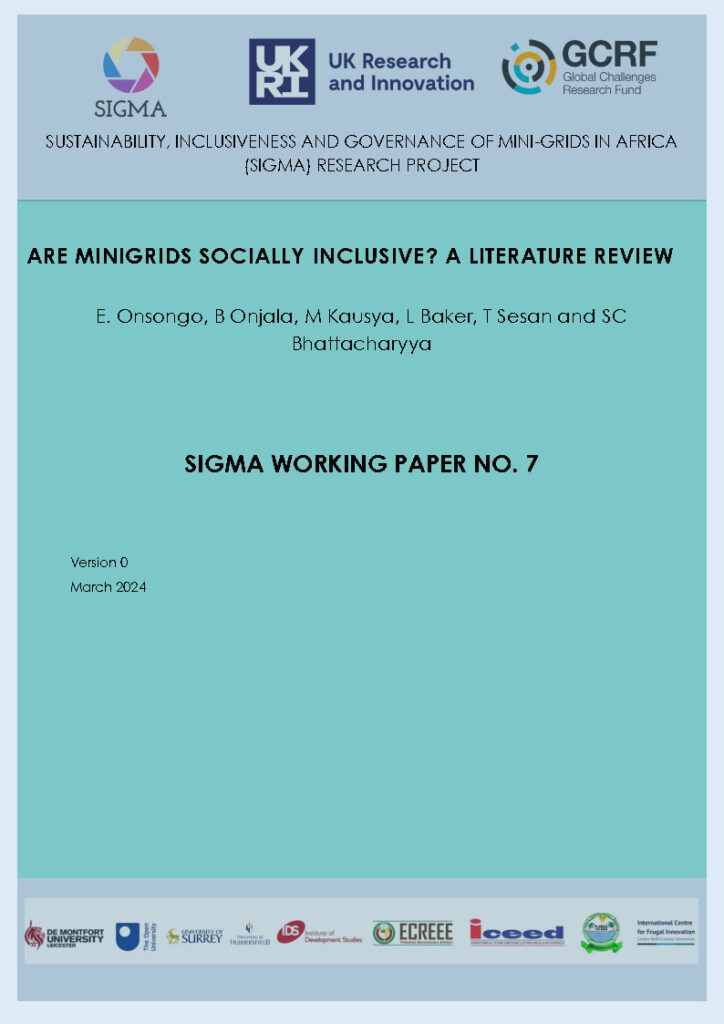
Are MiniGrids Socially Inclusive? A Literature Review
This study explores the potential of mini grids as tools for inclusive innovation to address energy poverty in the Global South. We adopt the concept of inclusive innovation—which emphasizes the use of innovation to mitigate social exclusion and improve the well-being of marginalized populations—to systematically assess the literature on minigrids in the Global South. We explore the extent of inclusiveness in the aspiration, design, procurement, deployment and impact of mini-grids. Our findings reveal that mini-grids have played a transformative role in bringing electricity to off-grid, marginalized communities in the Global South, offering the potential for income generation, a platform for local decision-making and ownership, opportunities forcapacity building and skill development thus empowering individuals and communities. However, the inclusivity of mini-grids is not universal and often masks underlying socio-economic disparities. The community’s role in the design, financing, procurement, and deployment of mini-grids is found to be minimal, highlighting the need for more democratic ownership and governance models. Further, mini grids often privilege middle- and upper-income households, mostly headed by men who possess the technical know-how and financial resources for effective mini-grid utilization. This leaves behind the poor, especially women, thereby exacerbating existing socio-economic divides. The structural and post-structural inclusivity of minigrids is limited, with traditional, top-down approaches still prevalent. To enhance inclusivity, policies should foster community ownership, equitable access, and capacity building among marginalized groups, encouraging exploration of alternative governance models aligned with energy justice principles. This shift towards participatory frameworks could make minigrids truly inclusive innovations, empowering communities and contributing to sustainable development in the Global South.
- Authors
- E. Onsongo
- B. Onjala
- M. Kausya
- L. Baker
- T. Sesan
- SC. Bhattacharyya
- Submission Date
- March 2024

Physical Address
No. MK088, Ushindi West Avenue,
Mukuyu Rd (Mukuyu West Wing), Thome 1
Nairobi, Kenya
Organization
Subscribe for newsletter & get news, events and publications updates
Contact Us
Office Tel: (+254) 20 8009928 |
Mobile: (+254) 706 324 467
© 2026 Nuvoni Research

